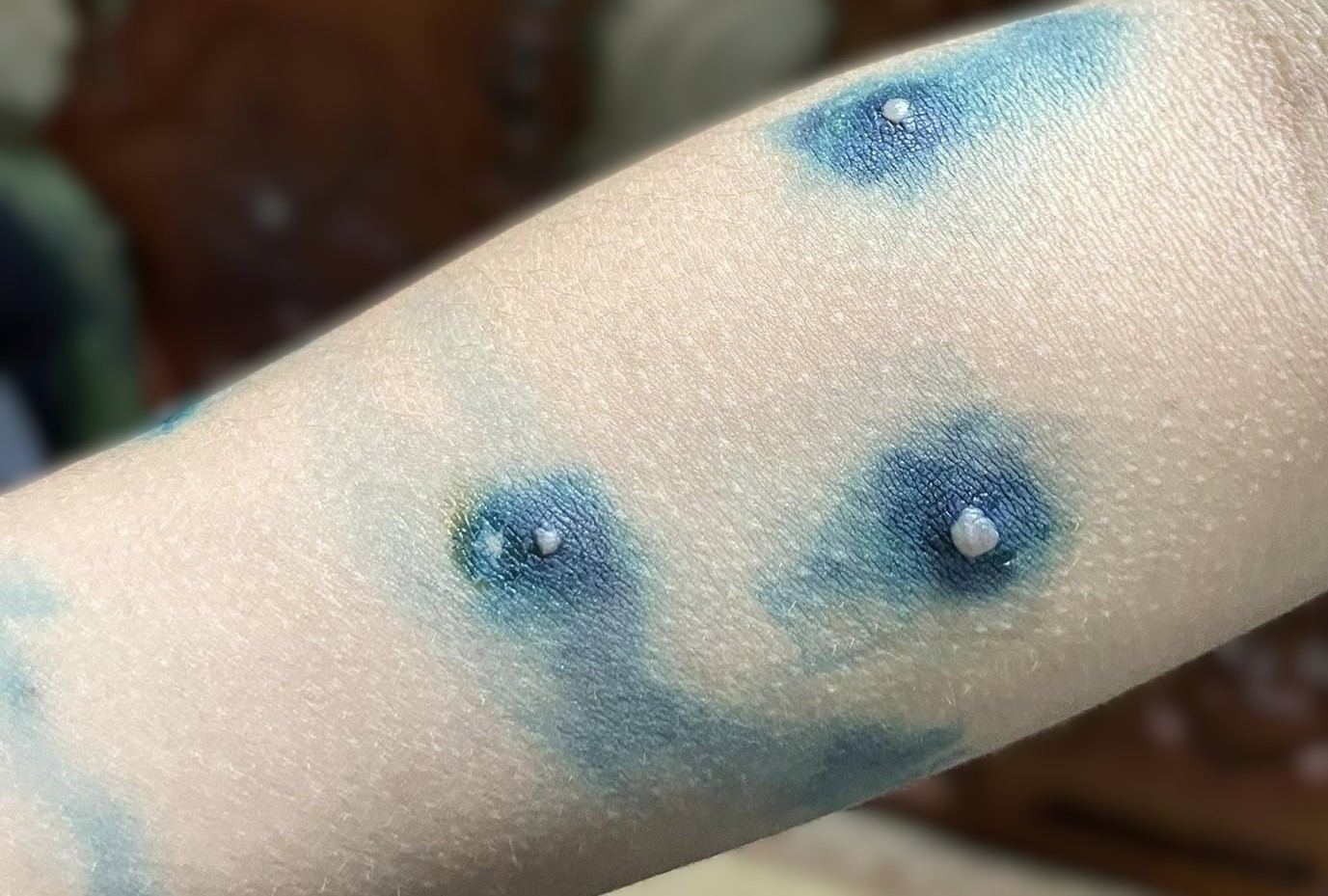Answer:
In traditional medicine, Asiatic pennywort is used to reduce fever and treat internal and external bleeding. However, there is no scientific evidence that applying its juice to blisters cures chickenpox. Moreover, Asiatic pennywort grows close to the ground and can harbor dust, bacteria, and viruses. Applying unwashed leaves to broken skin can cause inflammation, infection, ulcers, or even necrosis.
Vietnam has recorded several cases of severe infections from treating chickenpox with herbal baths or poultices. Recently, a 33-year-old man in Ho Chi Minh City suffered a severe infection after applying burnt rice straw ash to his chickenpox blisters, as advised by an acquaintance.
Therefore, you should not use Asiatic pennywort juice on chickenpox blisters. Instead, gently cleanse your body, use doctor-prescribed medication, and avoid touching or scratching the blisters to prevent infection. Wear loose, breathable clothing.
You should also drink plenty of water, eat nutritious foods, get enough sleep, and avoid staying up late or excessive worrying. If you experience high fever, difficulty breathing, or a significant increase in blisters, seek immediate medical attention.
 |
Blisters on the hand of a person with chickenpox. Photo: Dieu Thuan |
Chickenpox is an acute infectious disease caused by the Varicella Zoster Virus (VZV), easily spread through respiratory droplets from an infected person's nose or mouth. The virus can also cling to items like clothing and bedding when blisters break, infecting others.
The disease usually resolves within two weeks. However, without proper treatment, it can lead to complications such as pneumonia, encephalitis, myocarditis, nephritis, and arthritis. Chickenpox during pregnancy can cause miscarriage or birth defects.
In Vietnam, chickenpox can occur year-round, with a peak between February and June. Anyone who hasn't had chickenpox or doesn't have antibodies is at risk of infection. Vaccination is the most effective preventive measure.
Vietnam currently offers two chickenpox vaccines: Varilrix (Belgium) for children from 9 months old and adults, and Varivax (US) for children from 12 months old and adults. The vaccination schedule consists of two doses administered one to three months apart, depending on age. Two doses provide up to 98% protection.
Besides vaccination, people should wear masks in public, wash their hands frequently, gargle, and keep their homes clean to prevent viral transmission. Regularly disinfect homes, daycare centers, schools, classrooms, and household items with common disinfectants. Isolate children showing symptoms in a separate room until they recover to prevent community spread.
Doctor Nguyen Van Mac Toan
Medical Manager, VNVC Vaccination System
Readers can submit vaccine-related questions for doctors to answer here.












